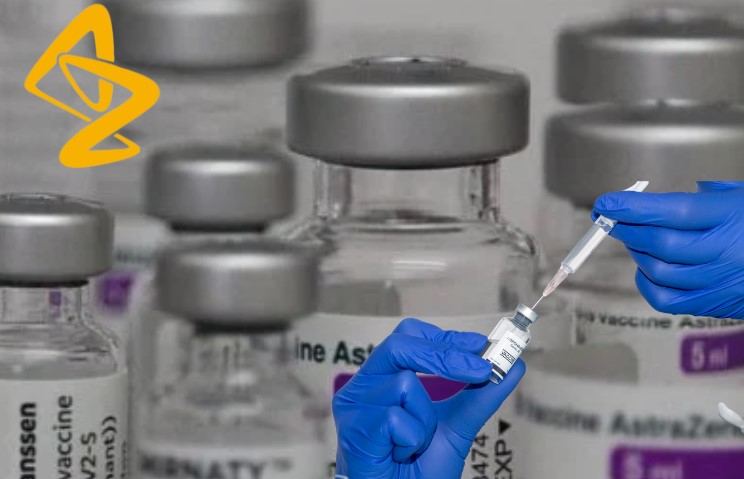April 30, 2024: AstraZeneca, a Covid-19 vaccine producer, whose Covid19 vaccine was administered to millions of people around the world, specifically most in India, admitted for the first time in court documents that its Covid-19 vaccine, sold globally under the brand names Covishield and Vaxzevria, among others, may lead to a rare, deadly side effect: Thrombosis with Thrombocytopenia syndrome (TTS).
This syndrome is characterized by blood clots and low platelet counts. The vaccine, which was sold globally under brand names like Covishield and Vaxzevria, has faced legal challenges due to alleged serious injuries and deaths resulting from its administration.
In official filings to the UK High Court, AstraZeneca acknowledged that their vaccine, albeit exceptionally rare, can trigger TTS. This legal tussle underscores the complexities surrounding vaccination, with impacted parties yearning for equitable reparation and recognition of vaccine-related harm. Despite the AstraZeneca-Oxford vaccine’s effectiveness in curbing the pandemic, the revelation of infrequent adverse reactions has prompted regulatory vigilance and legal recourse. If you harbor any apprehensions regarding vaccine safety,
What distinguishes the AstraZeneca Covid-19 vaccine?
The AstraZeneca vaccine, recognized as AZD1222 or Covishield in India, is a viral vector vaccine engineered to safeguard against the SARS-CoV-2 virus, the culprit behind Covid-19.
How does the Covishield vaccine function?
Operating by employing a weakened form of a common cold virus (adenovirus) found in chimpanzees, modified to carry the gene for a protein from the SARS-CoV-2 virus. Upon injection, the vaccine stimulates the human immune system to generate antibodies and activate T-cells, readying to combat the virus should exposure occur later.
What is the backstory of the AstraZeneca vaccine’s development?
The AstraZeneca vaccine arose from a partnership between the University of Oxford and the British-Swedish pharmaceutical company AstraZeneca. Researchers at the University of Oxford had long been refining a vaccine platform using adenovirus vectors. When the Covid-19 pandemic emerged, they swiftly redirected their efforts toward crafting a vaccine against the new coronavirus.
How has India contributed to the AstraZeneca vaccine’s development?
Pune-based pharmaceutical firm Serum Institute of India (SII) forged a strategic alliance with AstraZeneca and the University of Oxford in January 2021 to produce the Covishield vaccine for India and other low- and middle-income countries. Leveraging its robust manufacturing capabilities and expertise in vaccine production, SII could mass-produce the vaccine to meet the significant demand both domestically and internationally.
What is the distribution strategy for Covishield in India?
Covishield is distributed by the Government of India, various state governments, and through international collaborations like COVAX, a global initiative striving for equitable access to Covid-19 vaccines. As of 2022, over 1.7 billion doses of Covishield have been administered in India as part of the world’s largest vaccination campaign.
What are the known side effects of the Covishield vaccine?
The World Health Organization lists mild to moderate side effects associated with the AstraZeneca vaccine, typically short-term and self-limiting. These may include discomfort at the injection site, general malaise, fatigue, fever, headache, nausea, joint or muscle pain, swelling, redness at the injection site, dizziness, drowsiness, sweating, abdominal pain, and fainting. These side effects are generally transient and resolve without hospitalization.
In which countries has the AstraZeneca Covid-19 vaccine been banned?
Following close scrutiny, several countries suspended the AstraZeneca vaccine. Denmark led the way, followed by Ireland, Thailand, the Netherlands, Norway, Iceland, Congo, and Bulgaria. European nations such as Germany, France, Italy, and Spain also halted its use in 2021 due to reported cases of blood clots in vaccinated individuals. Canada, Sweden, Latvia, and Slovenia joined the ban, followed by Australia, Indonesia, and Malaysia due to safety concerns.
What has sparked the latest AstraZeneca controversy?
In a court filing in the UK, AstraZeneca admitted that its vaccine can cause a rare side effect known as Thrombosis with Thrombocytopenia Syndrome (TTS), emphasizing the mechanism remains unknown. Facing a class-action lawsuit alleging serious injuries and fatalities linked to its vaccine, the company contends that expert testimony is necessary to determine causation in each case.
What is Thrombosis with Thrombocytopenia Syndrome (TTS)?
TTS is a rare yet severe condition associated with certain Covid-19 vaccines, particularly adenovirus vector vaccines like the AstraZeneca and Johnson & Johnson’s Janssen vaccines. TTS involves the formation of blood clots coupled with low platelet levels (thrombocytopenia). Manifesting with blood clots in atypical locations, such as the brain or abdomen, along with reduced platelet counts, symptoms may include severe headache, blurred vision, difficulty speaking, chest pain, abdominal pain, shortness of breath, and leg swelling. TTS is thought to stem from an immune response triggered by the adenovirus vector, activating platelets and causing clot formation.


